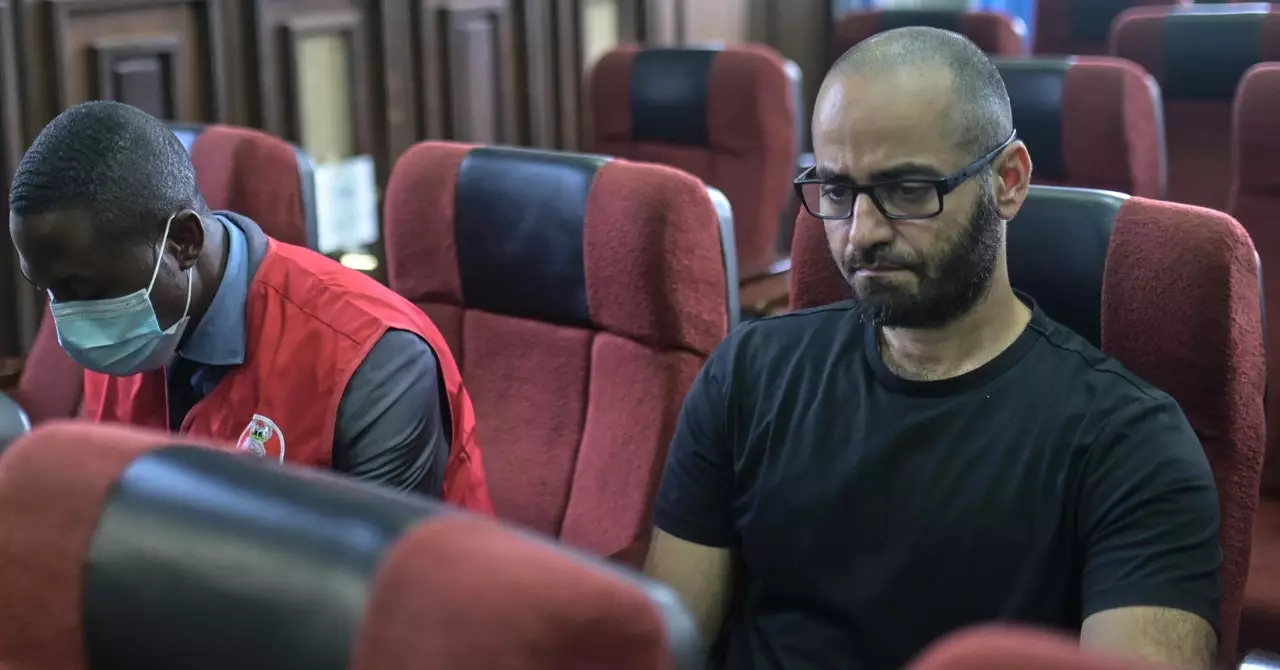The saga surrounding the detainment of a prominent figure in the world of cryptocurrency tracing, Irina Gambaryan, serves as a stark reminder of the vulnerabilities inherent within international finance and law enforcement. This high-profile case has sent shockwaves throughout both the cryptocurrency industry and the broader global financial community. Gambaryan, who made a name for himself as a pioneer in employing cryptocurrency tracing as an investigative tool during his decade-long tenure with the Internal Revenue Service (IRS), now finds himself facing serious charges in a foreign land. The irony is painfully evident: a man once tasked with tracking illicit financial activities has himself become embroiled in a substantial legal quagmire.
After being invited to Nigeria to mediate discussions regarding the ongoing complications faced by Binance—a major cryptocurrency exchange facing accusations related to money laundering and currency devaluation—Gambaryan was unexpectedly detained. By February, what began as a professional invitation escalated into a life-altering predicament, showcasing how quickly circumstances can deteriorate when international boundaries blur.
The Medical Dilemma
In a further twist, the Nigerian court recently deemed that the criminal charges against Gambaryan should be dropped on medical grounds. According to reports, the ex-Binance executive has been suffering from a herniated disc—a serious condition that not only impedes his mobility but also requires urgent surgical attention. His family’s claims that he traveled to Nigeria in good health have become tragically ironic, especially considering the deteriorating state of his physical condition during the months spent incarcerated in Kuje prison. In July, he was wheeled into a courtroom, while a video released in September depicted him laboriously attempting to navigate the room on a single crutch while pleading for assistance from a security guard—visual representations of a personal and medical crisis grappling with legal complications.
That Gambaryan is still not released, even after the court ruling, speaks volumes to the complexities of international law and diplomacy. Patrick Hillman, a former colleague at Binance and participant in the lobbying efforts for Gambaryan’s release, articulated a palpable sense of apprehension: “We’re all kind of waiting right now to hear that he’s on a plane…” This disturbing uncertainty underscores not just the struggles of a single individual but reflects broader issues related to human rights, due process, and the protection of foreign nationals in legal systems that may differ dramatically from those in their home countries.
The implications of this case extend beyond Gambaryan’s personal plight. Growing international pressure has put Nigeria in a precarious position, especially in the wake of escalating calls from U.S. lawmakers who have urged the administration to approach this as a hostage situation. Sixteen members of Congress have expressed their concerns, bringing attention to the notion that Gambaryan may be an unintended pawn in a larger geopolitical chess game surrounding cryptocurrency, finance, and regulatory frameworks.
Additionally, these developments have also invigorated a collective response from various state attorneys general indicating a unified front demanding that the White House leverage its position to facilitate Gambaryan’s release. Such calls highlight the intertwined nature of politics, finance, and civil rights, grappling with a narrative that has raised alarms over the treatment of American citizens abroad.
Ultimately, the Gambaryan case serves as a case study of the multifaceted challenges that modern law enforcement and international regulations face amid a rapidly evolving financial landscape. The rise of cryptocurrencies and digital currencies has left many governments—including Nigeria—struggling to adapt to new economic realities. As regulators grapple with issues of compliance, money laundering, and illicit activities, individuals like Gambaryan walk a thin line between being a guardian of the law and falling victim to convoluted legal frameworks in foreign jurisdictions.
Gambaryan’s plight not only shines a light on the potential dangers posed by a rapidly changing global economy but also highlights the urgent need for international collaboration in addressing financial crimes. As governments across the world strive to maintain regulatory oversight in an increasingly borderless financial environment, such incidents serve as both a wake-up call and a poignant reminder of the human cost tied to these evolving dynamics. Whether Gambaryan will indeed return home remains uncertain, but his situation has undeniably sparked a broader discourse about the intersection of finance, law enforcement, and human rights in the digital age.


Leave a Reply